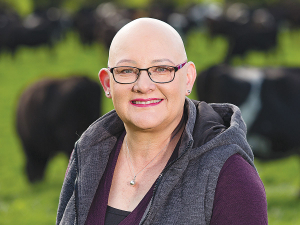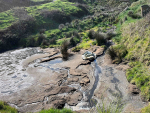Waikato Regional Council’s new chair, Pamela Storey, says the relationship between the council and farmers in the region has improved over the past three years.
Storey took over the chair’s role late last month after a tight race for the position between Storey and fellow councillor Stu Kneebone.
While Storey and Kneebone tied for the position in the initial vote, it was decided when Storey’s name was pulled from a hat.
This is Storey’s second term as a councillor: previous roles included acting as a board member of Dairy Women’s Network and spending 20 years in various governance roles.
“Local government is different,” she told Dairy News. “I suppose that when you join council for the first time, it is a very steep learning curve… first of all, the depth and breadth of the work that the Regional Council does, that is considerable.”
Storey says that unless you’re a person who has interacted with all of the different parts of the council previously, you won’t necessarily be aware of all the work the Regional Council does.
She adds that understanding the legislative framework under which council operates can take time as well.
During her last triennium (three-year term) on the council, Storey chaired the strategy and policy committee.
“Chairing that allows you to develop some skills around how you chair 14 councillors through discussion and debate, but it also allowed me to really immerse myself in that policy development space, including making submissions on central government direction.”
From Storey’s perspective, both as a councillor and as a dairy farmer, the relationship between Waikato Regional Council and the region’s farmers has improved in the past three years.
“I think inevitably there is going to be some tension because of the regulatory environment that the WRC operates,” she says.
“That tension isn’t just with farmers, it’s with everyone that operates within the resource space and interacts with the council in terms of compliance.”
She says she sees those tensions across a number of sectors, not just with farmers.
“But as an example, I think we’re putting a great deal of effort into enabling farmer producers to continue to develop good practices and support where we’re able to, and that includes helping farmers to get funding to support some really positive work that’s happening in the catchment space.”
She says that one of the most important things is ensuring that council is working alongside farmers during times of regulatory change.
Storey says the most significant issue that will impact farmers this triennium is the Government’s freshwater package.
The freshwater regulations require farmers who graze livestock on an annual forage crop over winter and do not meet a range of permitted activity criteria to gain a certified freshwater farm plan or apply for a resource consent from 1 November 2022.
Storey says initial conversations with communities in the Waikato region kicked off in the last triennium, now the issue is progressing the policy development to ensure the policies are “as simple as possible for those that have to implement them”.
She says that while there are time constraints in place, the current question before council is how to have effective conversations with communities during the policy development phase.
Centeral Govt Policy Has Impact
Waikato Regional Council chair Pamela Storey says policies from the central Government have a significant impact on the relationship between local government and farmers.
She says that this is mainly because local government is the one to enforce certain regulations.
“We are where the rubber hits the road in terms of giving effect to these proposed changes,” she told Dairy News.
“And so, inevitably, when we talk to people that might be impacted by central government direction, they think it’s coming from us, so they think that it’s originating from the regional council and that’s not the case.”
Storey says this inevitably causes tension.
“Local councils are required to deliver on those national policies and how this region is affected by those proposed policies is unique as it is with every region, rarely does one size fit all.
“So… from my perspective, ensuring that the Waikato voice is reflected loud and clear during the government policy development process, that to me is very important alongside ensuring quality engagement with the farming community when we are finally tasked with delivering on whatever central government directions, wherever they land.”


















